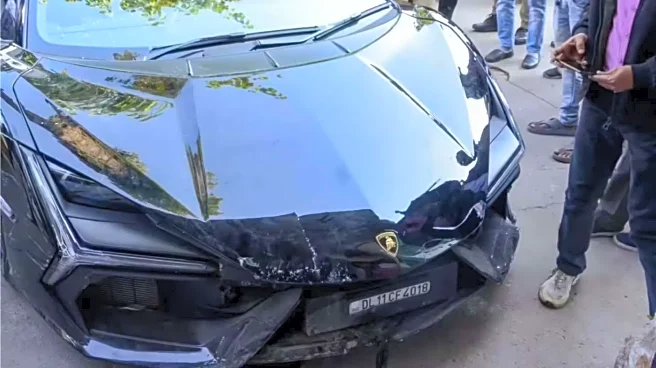Tesla's update comes at a time when it is grappling with a sales slump from an ageing lineup and competition from Volkswagen and BYD. Sales slowed in China and Europe. Musk's far-right endorsements and rhetoric sparked consumer backlash and boycotts.
According to media reports, company executives delayed full output until after the US ended $7,500 federal EV tax credits in September. Tesla calls the vehicles its cash engine to support a pivot to autonomy and robotics.
Elon Musk, CEO of Tesla, has prioritised self-driving technology and humanoid robots over a $25,000 model. The company cancelled plans for that cheaper EV last year. Musk promised a vehicle below $30,000, including tax credits. Reports also say that Tesla plans a stripped-down Model 3.
Affordable cars will help Tesla reach 20 million annual deliveries in the next decade. This goal is part of Musk's proposed $1 trillion pay package. Tesla released a new Full Self-Driving (Supervised) driver assistance system on the same day.
The new Model Y has rear-wheel drive. It offers 321 miles of range on a full charge. This is less than the 357 miles in the long-range rear-wheel-drive version. The model lacks a panoramic glass roof, leather seats, light bars, and a second-row touchscreen. It has a fabric interior instead of microsuede and fewer audio speakers. The price is $5,000 below the prior entry-level Model Y.
The new Model 3 also has rear-wheel drive. It matches the Model Y's 321-mile range. It cuts ambient lighting and other features. Tesla faces competition in the $40,000 range. Key comparisons to rivals include:
Volkswagen ID.4 (2025, Pro): Starts at $45,095; 291-mile range; charges 10-80% in 28-30 minutes; accelerates 0-60 mph in 4.9 seconds with dual-motor all-wheel drive; offers lane change assist, parking assist, and memory parking.
Kia EV4 (Expected): Starts at $35,000; up to 391-mile range (WLTP); charges 10-80% in around 30 minutes; accelerates 0-60 mph in 7.4-7.7 seconds; includes detect assist and advanced features in higher trims.
Hyundai Ioniq 5: Starts at $42,600; 318-mile range; charges 10-80% in 20 minutes; accelerates 0-60 mph in around 7.4 seconds; provides collision avoidance lane follow assist and level 2 assist for higher trims.
Chevrolet Equinox EV: Starts at $33,600; around 319-mile range on front-wheel drive; charges 10-80% in 10-45 minutes depending on charger type; accelerates 0-60 mph in around 7.4 seconds with single-motor front-wheel drive; includes safety assist with lane alert and collision alert.
The new models charge faster than some rivals. The Model Y adds up to 160 miles in 15 minutes. The Model 3 adds up to 170 miles in 15 minutes. The Volkswagen ID.4 takes 28 to 30 minutes for 10-80%. The Kia EV4 takes around 30 minutes. The Hyundai Ioniq 5 takes 20 minutes. The Chevrolet Equinox EV takes 10 to 45 minutes, depending on the charger.
Tesla's acceleration beats most competitors. The Model 3 reaches 0-60 mph in 5.8 seconds. The Model Y does it in 6.8 seconds. The Volkswagen ID.4 takes 4.9 seconds with all-wheel drive. The Kia EV4 takes 7.4 to 7.7 seconds. The Hyundai Ioniq 5 takes around 7.4 seconds. The Chevrolet Equinox EV takes around 7.4 seconds.
Driver assist features vary, as Tesla includes traffic-aware cruise control and highway driving assist on the Model 3. The Model Y has traffic-aware cruise control. The Volkswagen ID.4 offers lane change assist, parking assist, and memory parking.
The Kia EV4 has detect assist and advanced features in higher trims. The Hyundai Ioniq 5 provides collision avoidance, lane follow assist and level 2 assist for higher trims. The Chevrolet Equinox EV includes safety assist with lane alert and collision alert.
Interestingly, Tesla has not released a new model since Cybertruck shipments started in late 2023. Musk unveiled Cybertruck in 2019. A demo shattered a window. It faced eight US recalls. It did not match Model 3 or Model Y popularity.
Musk has shifted focus to AI. In October 2024, Tesla held the "We, Robot" event. It showed a Cybercab concept without a steering wheel or pedals. Musk said it would cost $30,000. However, it is still not in production. Musk promised robotaxis via software updates for a decade.
Musk promised a next-generation Roadster in 2017. It has not entered production. In 2021, he said it would fly. Last year, he said SpaceX helped redesign it.
(With input from agencies)
/images/ppid_59c68470-image-175990753396948592.webp)







/images/ppid_a911dc6a-image-177070603750921141.webp)

/images/ppid_a911dc6a-image-177070610750170339.webp)
/images/ppid_a911dc6a-image-177070607402856649.webp)
/images/ppid_a911dc6a-image-177070618166210196.webp)
/images/ppid_a911dc6a-image-177070614663671553.webp)
/images/ppid_a911dc6a-image-177070607510131909.webp)